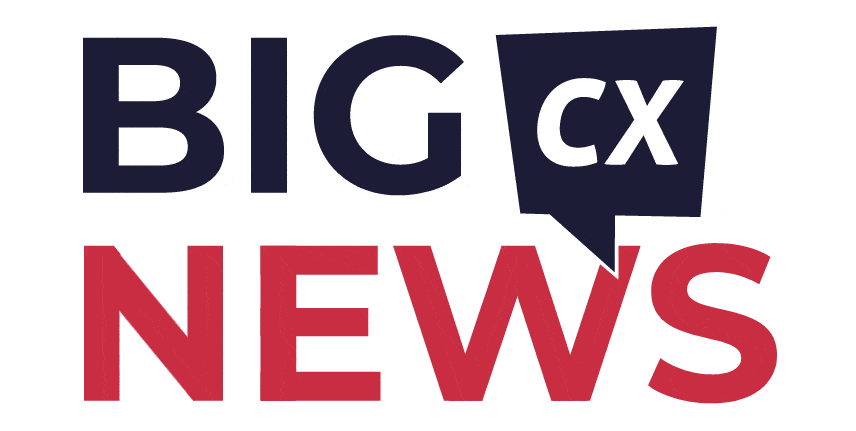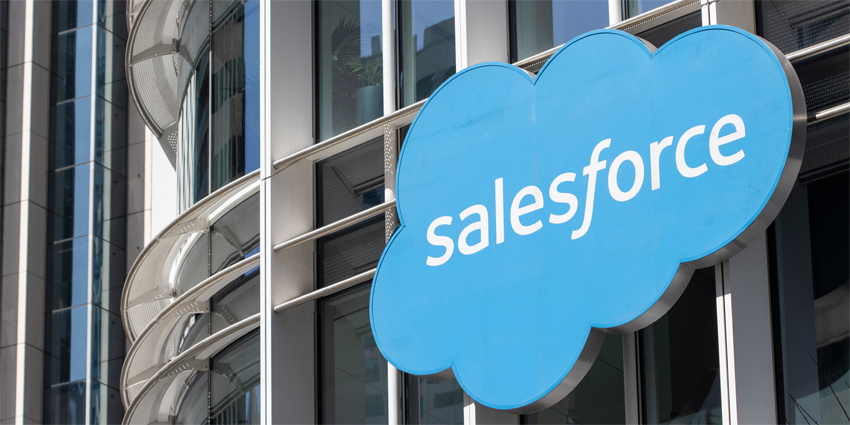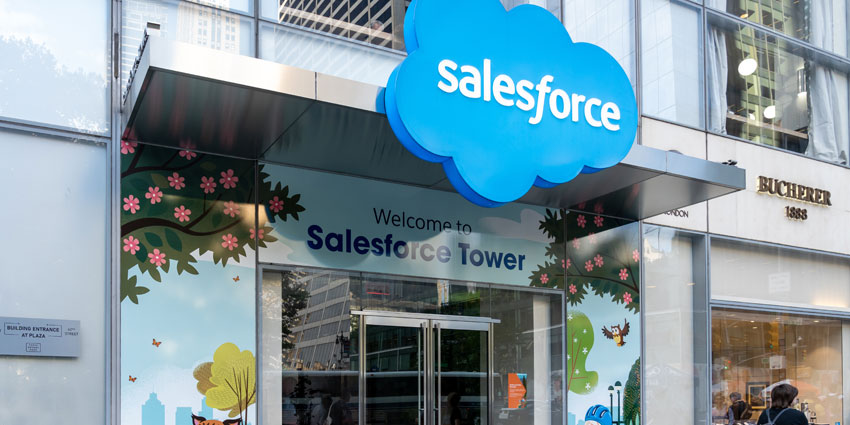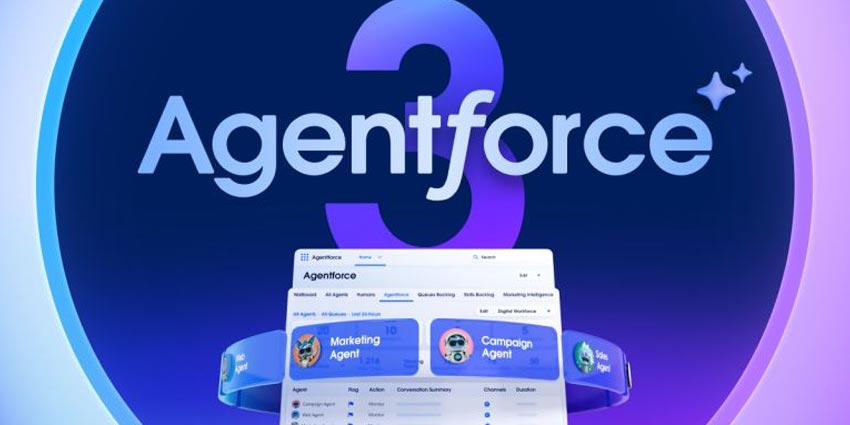From more generative AI releases to prominent CX vendors teaming up, here are some extracts from our most popular news stories over the last seven days.
Salesforce Sprinkles Generative AI Into Its Automation Portfolio
Salesforce has announced Einstein GPT for Flow, its automation suite.
The addition of generative AI promises to allow businesses to create workflows from text prompts, advancing the more conventional no-code, drag-and-drop automation building.
Effectively, this removes manual, step-by-step processes, lowering the barriers to adoption for less technical users.
For instance, with Einstein GPT for Flow, a customer can simply type: “Send an email to a group when we secure a new customer.” The solution then creates it automatically.
After, a developer can tweak, test, and deploy.
Of course, some may scratch their heads and ask: how does it work with Salesforce records and metadata to correctly configure such flows?
It does so through Data Cloud. Data Cloud allows users to unify various data sources.
Indeed, the solution enables businesses to import objects from a Salesforce CRM, commerce, and marketing tools. It also pulls from the website, mobile app, and other external sources with its Ingestion API.
With Flow embedded into Data Cloud, Salesforce hopes to help its clients make every experience more “interconnected and personalized.”
John Kucera, SVP of Automation at Salesforce, builds on this point. He stated:
By powering Flow with Einstein and GPT and Data Cloud, we’re not only enhancing usability but also ensuring our customers have access to the most advanced tools to achieve even more productivity, efficiency, and growth.
There are several examples of how Flow already drives up such business efficiency.
As an example, brands may build a workflow designed to offer in-store discounts to customers at the ideal moment.
Another involves dynamic pricing capabilities to automatically adjust the prices of products based on real-time demand and supply.
Zoom, Oracle to Optimize Telehealth Services
This week Oracle and Zoom enhanced their collaboration to leverage telehealth channels on Oracle Cerner Millennium to improve remote patient appointment connectivity and seamless access to relevant patient electronic health records (EHR).
The continued partnership looks to deliver faster, easier, and more effective telehealth services for patients and healthcare professionals.
Oracle and Zoom achieve this with a connected solution that creates a familiar workflow and provides tools to track EHR data before, during, and after a call.
As a result, the Zoom-enhanced Oracle Cerner Millennium can reduce time investments with the multipurpose suite tools.
Heidi West, the Head of Healthcare at Zoom, added:
As people have adopted virtual meetings in workplaces and in their personal lives, they are increasingly seeking that same convenience, simplicity, and choice in healthcare. Telemedicine consultations and virtual visits provide options and access at the times and places that would be best for them.
Moreover, West said that integrating Zoom with Oracle Cerner Millennium provides “the next step” in expanding Oracle’s solution as a healthcare tool.
West also noted that the Zoom-optimized platform can “make it easier for doctors to incorporate telemedicine into their practice to enhance the patient experience while reducing administrative overhead.”
Google’s Latest Generative AI Plans Prompt an End-User Warning from Twilio
Earlier this week, The Financial Times revealed Google’s plans to bring generative AI to advertising.
In doing so, Google hopes to create “novel” advertisements for various consumers.
To create these, advertisers supply text, images, and videos to Google that relate to a specific advertising campaign that they wish to run.
From there, its AI mixes the material with information regarding the target audience and sales targets to auto-generate personalized ads.
While these plans sound exciting, Google is not yet ready for release, with these details shared only in an internal presentation.
Nevertheless, before Google takes the next step, Sam Richardson, Customer Engagement Consultant at Twilio, shared his reservations regarding how end-users may adopt such solutions. He stated:
Google’s rush towards AI is a major indication that this is where the ad industry is heading – but the success of generative AI will depend on how companies use it.
In stating this, Richardson underlined his belief that generative AI offers an opportunity for significant gains in customer acquisition – when utilized alongside a customer data platform.
Yet, “with great power comes great responsibility,” he warns.
“Any organizations adopting AI and machine learning to power their personalization efforts must ensure that their AI/ML models are trained on high-quality data and aligned with their customers’ preferences and values, as well as acquired with user consent.
The quality of what customers put in is what they will get out.
There are also many concerns regarding the broader impact of generative AI in its potential for spreading disinformation, enabling phishing attempts, and increasing cybercrime.
Nevertheless, Google has reaffirmed its commitment to establishing guardrails when rolling out new generative AI-based solutions – as per The Financial Times.
Dialpad and Zendesk: The Latest CX Vendors to Launch Generative AI Solutions
Dialpad and Zendesk have become the latest prominent CX tech providers to launch GPT-powered innovations, with the promise of more to come.
The move is a significant shift for Dialpad, which has so far kept the development of its AI portfolio in-house, avoiding third-party partnerships.
However, it is now promising to leverage the power of large language models (LLMs) to release 12 generative AI features in the next 12 months for its Ai-Powered Customer Intelligence Platform.
Again, this potentially highlights the disruptive potential CX vendors see in generative AI.
Indeed, Dialpad promises to deliver “industry-first capabilities” by combining its original AI models with LLMs and its proprietary datasets.
Undoubtedly, its team is hard at work building those. Yet, in terms of its first four generative AI features, they are similar to those put forward by rival vendors.
First is an auto-summarization tool known as “Ai Recap.” The solution generates intent, outcome, and action items across all voice conversations on its platform.
The solution is similar to those put forward by several of its rivals – including NICE, Talkdesk, and Five9 – in recent months.
Yet, Dialpad is also releasing additional generative-AI-enabled WFO capabilities.
Meanwhile, at Zendesk…
Zendesk has launched three new generative AI-driven solutions, which stem from its collaboration with OpenAI, the creator of ChatGPT.
To do so, the leading helpdesk provider has created foundational models that leverage decades of CX data and industry-specific insights it has collected.
The vendor has paired these with OpenAI’s LLMs to create solutions “efficiently resolve customer service cases.”
First up is a tool similar to Dialpad’s Ai Recap solution. Indeed, the “Content Summarization” tool auto-generates a summary of agent tickets, helping decrease post-call processing time.
Next is a “knowledge base and macros creation” feature. Similar to a solution that CRM-rival Salesforce recently teased, this evaluates tickets, spots gaps in the knowledge base, and auto-creates articles for review.
Finally, Zendesk released an “expanding agent supplies” solution. This allows agents to type the crux of a response. The tool then fleshes that out, crafting a message the rep can review, tweak, and send.







